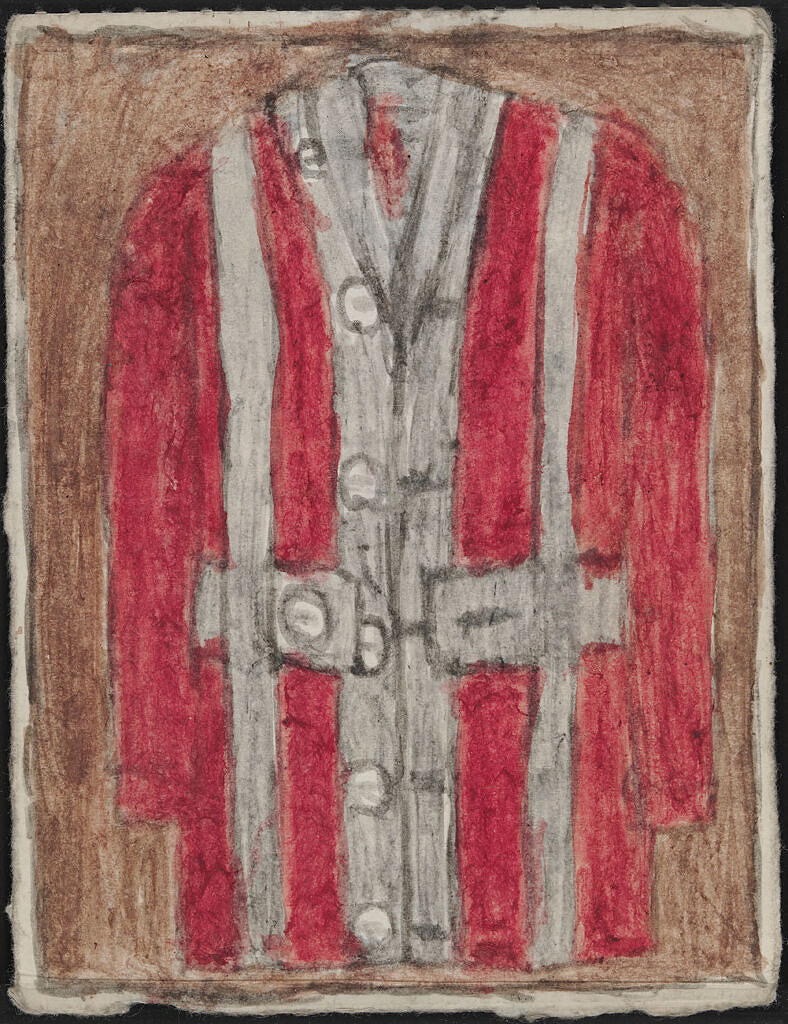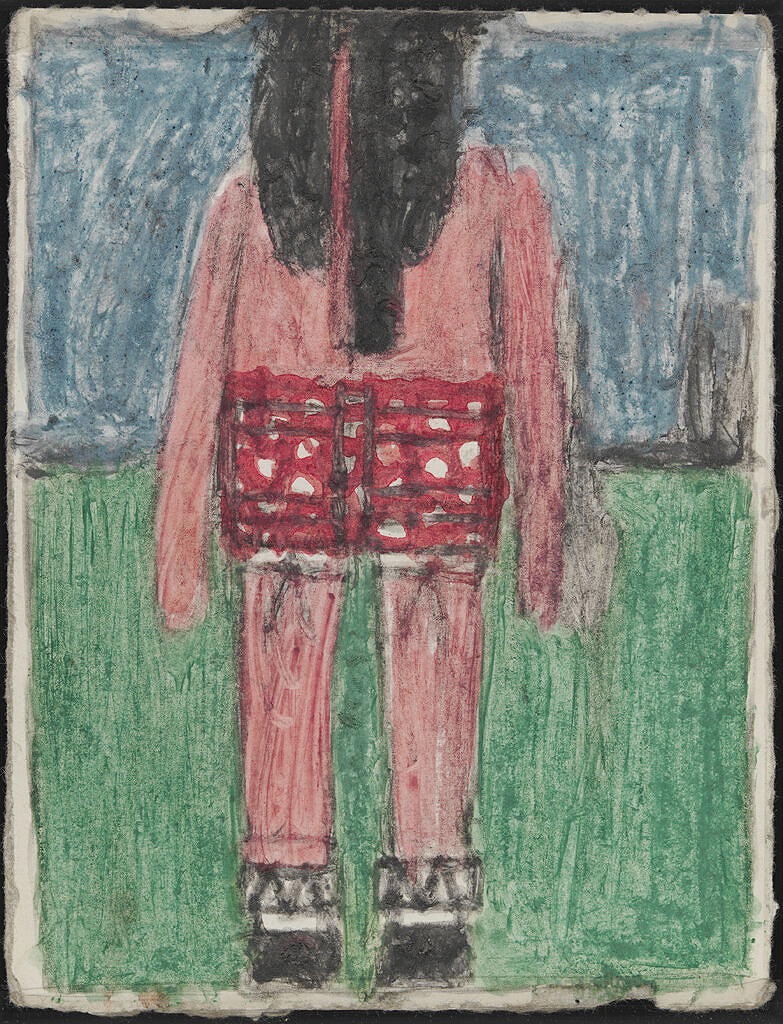Idiology


James Castle: Red Coat; verso: Back of Man ((20th century)
"The best of all possible opponents to have when battling for decency and justice."
People complain about the MAGA ideology without slowing down to appreciate its underlying Idiology. It might be that we innocently mistake one for the other. Ideology amounts to ideas and ideals—beliefs—that drive political theories and policies. It's easy to presume that some shared beliefs drive an ideological bus, when they might not be present or that influential. It sure seems as though every MAGA has undergone a brain transplant to replace their intelligence with something less inquisitive. Belief sure seems to drive their behaviors, but their beliefs don't seem to be all that consistent. What might bring them together when their beliefs only seem to converge? I think it's the urge, or more properly, the inherent inability to control that urge. It's not so much what they believe as how they believe. They believe with such conviction that they do not seem to question the reasoning behind their interventions. Because of this hair-trigger belief system, they render themselves incapable of foreseeing likely implementation complications. They act without first questioning. They engage with such unshakable certainty that they seem genuinely shaken when their latest hare-brained scheme predictably blows up in their face.
It's a genuine gift for an opponent to exhibit authentic Idiology, for however fickle the details of their moves might seem, they each share a hyper-predictable pattern. They reliably leave an exposed flank. They tend to fly into the sun, assisting their opponents in intercepting them unnoticed. They rarely follow protocol or procedure. Not even laws against tend to dissuade them, as if they had not even bothered to consult precedent before implementing. Their confidence reassures them, even though and perhaps especially when they act upon some eleventh-hour revelation. They do not lack self-esteem; fortunately, it tends to be that self-undermining kind. They take to each stage confident that, while they haven't practiced, divine intervention might realistically render them masters at the moment their performance commences. They tend to disappoint their audiences, though their disappointment often fails to register, for how could their loyal fans fail to support their revelatory plans? They become most skilled at denying consequences. They come to inhabit an I Know You Are But What Am I? universe, endlessly misunderstood.
They get exceptionally skilled at blaming those who see through their ruses for the difficulties they inevitably bring on themselves. These behaviors eventually even alienate many who formerly constituted their base, as one by one, then in multiples, they see their promises reneged upon in favor of another eleventh-hour realization. Their interventions tend to be fueled by revelation because that's almost all that ever fuels them. They are virtually never predicated upon logic or reason. They believe themselves the beneficiaries of serial divine interventions, and pity their opponents for seeming to channel only demons. They seem to be guided by a jealous God, one envious of others' accomplishments and perennially playing catch-up. Courts continually disagree with their trajectories. Judges wonder why they don't employ the mechanisms already existing to facilitate changes. Beligerent ignorance probably explains the underlying reason. They do not know or understand the rules and didn't feel all that moved to learn or follow them because, being blessed, they knew they could rely upon divine revelation.
Their faith seems boundless, primarily lacking only firing discipline. They do not seem able to withhold fire until their opponent's most vulnerable. They tend to give their position away, thereby forfeiting what might have been some strategic advantage. Seemingly ever-ready to fire before aiming, they remain tense and ready to perform their instinctive imperatives. They neglect to seek warrants. They inevitably forget to dot their T-s and cross their I-s. They inadvertently leak their battle plans before engaging. They mock security and secrecy laws to forfeit their advantage. They are dervishes, certain to start spinning at some point in every engagement. Their loyal opposition grows weary of effortlessly pinging crows lined up so obviously along every fence top. I guess the Idiologues mostly lack a certain maturity that could enable them to withhold gratification until a more strategic inflection point. They engage as innocent as ignorant children, steadfastly refusing to learn their lessons. They represent a great gift to their opposition, for as opponents, they rarely see their comeuppances coming. It's always mowing down zombies when repelling another of their inept assaults. While zombies can make terrifying opponents, the outcomes they manage to engineer tend to be modest and not resilient, quickly erased. They remain paper tigers, driven by questionable inspiration, seemingly bound and determined to fail. They represent the best of all possible opponents to have when battling for decency and justice.
©2025 by David A. Schmaltz - all rights reserved


